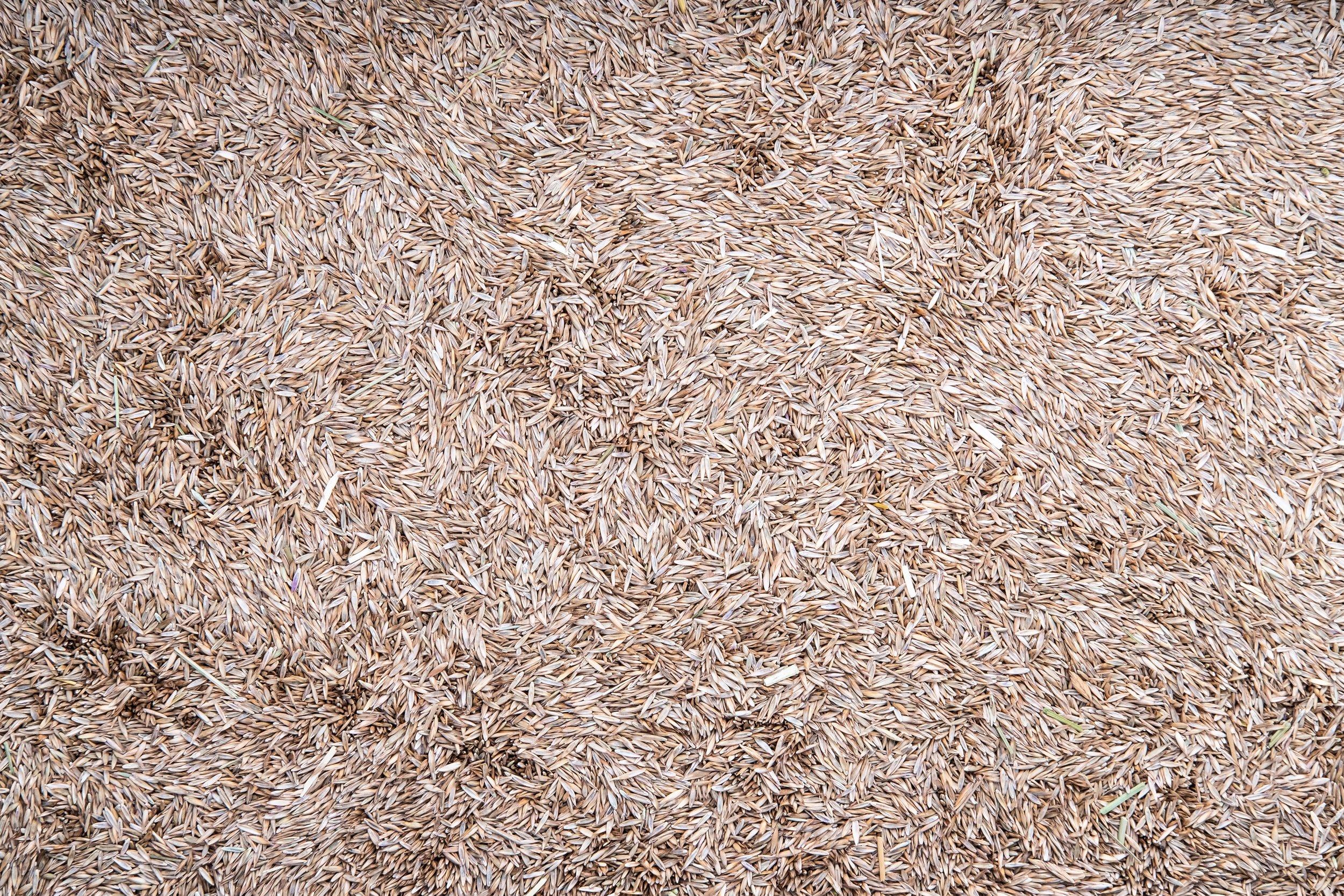Understanding Delaware Department of Transportation (DelDOT) Seed Mixtures: A Comprehensive Guide
Erosion and sediment control are vital components of construction and land development projects, particularly in environmentally sensitive areas like Delaware. The Delaware Department of Transportation (DelDOT) has established specific regulations for seed mixtures used in roadside stabilization and erosion control. For contractors, understanding these requirements is essential to ensure compliance and project success.
This guide provides an in-depth look at DelDOT seed mixtures, offering essential information for proper application and adherence to Delaware's regulations.
Why Seed Mixtures Matter in Delaware
Delaware's unique geography, with its proximity to the Atlantic coast and the Chesapeake Bay, makes it especially susceptible to soil erosion and sedimentation. Proper seed mixtures are crucial for:
Erosion Control: Stabilizing soil to prevent erosion along highways and construction sites.
Environmental Protection: Preventing sediments from entering waterways and harming aquatic ecosystems.
Aesthetic Appeal: Enhancing the visual landscape along Delaware's roadways.
Regulatory Compliance: Meeting DelDOT standards to avoid fines and project delays.
Overview of DelDOT Seed Mixtures
DelDOT Specifications
DelDOT outlines detailed specifications for seed mixtures in their "Standard Specifications for Road and Bridge Construction." These specifications dictate:
Seed Types: Approved species suitable for Delaware's climate and soil conditions.
Seeding Rates: Required quantities per acre for effective coverage.
Application Methods: Procedures for soil preparation, seeding, and mulching to ensure successful vegetation establishment.
Types of Seed Mixtures
Seed mixtures are selected based on:
Project Requirements: Whether the need is for temporary stabilization or permanent vegetation.
Site Conditions: Factors like soil type, moisture levels, and sunlight exposure.
Environmental Considerations: Preference for native species to promote local biodiversity and ecosystem health.
Common Seed Components
Grasses: Tall fescue, perennial ryegrass, Kentucky bluegrass.
Legumes: White clover and red clover for nitrogen fixation and soil enrichment.
Native Wildflowers: To enhance ecological value and roadside aesthetics.
Regulatory Requirements and Compliance
Seed Quality Standards
Certification: Seeds must be certified and meet purity and germination standards set by DelDOT.
Noxious Weeds: Seed mixtures must be free of prohibited weed species to prevent the spread of invasives.
Labeling: Proper labeling with species names, lot numbers, and test dates is required for verification.
Application Guidelines
Timing: Optimal seeding periods are typically in the spring and fall to take advantage of favorable growing conditions.
Soil Preparation: Includes grading, loosening the topsoil, and adjusting pH levels to promote seed germination.
Fertilization: Apply fertilizers as recommended based on soil tests to provide necessary nutrients.
Mulching: Use specified mulching materials to protect seeds from erosion and retain soil moisture.
Erosion and Sediment Control Plans
Plan Development: Contractors must develop and submit an erosion and sediment control plan to the Delaware Department of Natural Resources and Environmental Control (DNREC) for approval.
Best Management Practices (BMPs): Implement BMPs as outlined by DelDOT and DNREC to minimize environmental impact.
How to ensure success for your next project
Familiarize Yourself with DelDOT Standards
Access Official Documents: Download the "Standard Specifications for Road and Bridge Construction" from the DelDOT website.
Study Relevant Sections: Focus on sections related to seeding, erosion control, and environmental protection.
Consult Local Experts
Chesapeake Valley Seed: Partner with us for expert advice on DelDOT-compliant seed mixtures.
Local Agencies: Engage with DNREC for regulatory clarifications and additional guidance.
Select Appropriate Seed Mixtures
Site Assessment: Evaluate specific conditions of your project site, including soil type and drainage.
Customized Mixes: Choose seed mixtures tailored to your project's needs while meeting DelDOT requirements.
Ensure Proper Implementation
Trained Personnel: Utilize experienced staff for soil preparation and seeding operations.
Equipment Use: Employ appropriate machinery for even seed distribution and soil compaction.
Maintain Compliance Documentation
Record Keeping: Document all seed purchases, certifications, and application methods meticulously.
Source of Supply Letters: Obtain and retain letters verifying seed compliance for inspection purposes.
Monitor and Adjust
Regular Inspections: Conduct frequent checks for germination success and signs of erosion.
Maintenance: Reseed or repair areas as needed to maintain compliance and site stability.
Benefits of Compliance
Environmental Stewardship: Contribute to the protection of Delaware's natural resources and ecosystems.
Legal Assurance: Avoid penalties and ensure smooth project progression by meeting all regulatory requirements.
Quality Results: Achieve durable vegetation cover and effective site stabilization.
Reputation Building: Demonstrate professionalism and a commitment to environmental responsibility.
Resources
Delaware Department of Transportation (DelDOT): deldot.gov
Delaware Department of Natural Resources and Environmental Control (DNREC): dnrec.delaware.gov
Chesapeake Valley Seed: Expert advice and DelDOT-compliant seed mixtures, you can get in touch with us here.
Source of Supply Letters: Download seed compliance documentation from our website here.
Understanding and adhering to DelDOT seed mixture regulations is crucial for out-of-state contractors working in Delaware. By selecting appropriate seed mixtures and following application guidelines, you ensure compliance, promote environmental conservation, and enhance the success of your projects.
For personalized assistance and high-quality, compliant seed mixtures, reach out to Chesapeake Valley Seed. Our expertise will guide you through Delaware's requirements and help you achieve optimal results.
About Chesapeake Valley Seed
Chesapeake Valley Seed is a leading provider of high-quality seed mixtures that meet Delaware's erosion and sediment control standards. With extensive knowledge of DelDOT requirements, we offer customized solutions to help contractors successfully stabilize their project sites. Contact us today to learn how we can support your erosion control needs.
Disclaimer: This article is intended for informational purposes only and does not constitute legal advice. Contractors should consult official regulatory documents and local authorities to ensure full compliance with all applicable laws and regulations.


